Problem-Solving Skills Easy Word Problems Worksheets for Ages 5-9
10 filtered results
-
From - To
Enhance your child's problem-solving abilities with our "Easy Word Problems Worksheets" designed for ages 5-9. These engaging worksheets feature a variety of fun and challenging scenarios that encourage young learners to think critically and apply math skills in real-life contexts. Each problem is crafted to build confidence, enhance comprehension, and foster a love for learning. Suitable for both classroom and home learning environments, our worksheets are perfect for reinforcing foundational math concepts while developing essential analytical skills. Download now to give your child the tools they need to tackle everyday challenges with creativity and confidence!
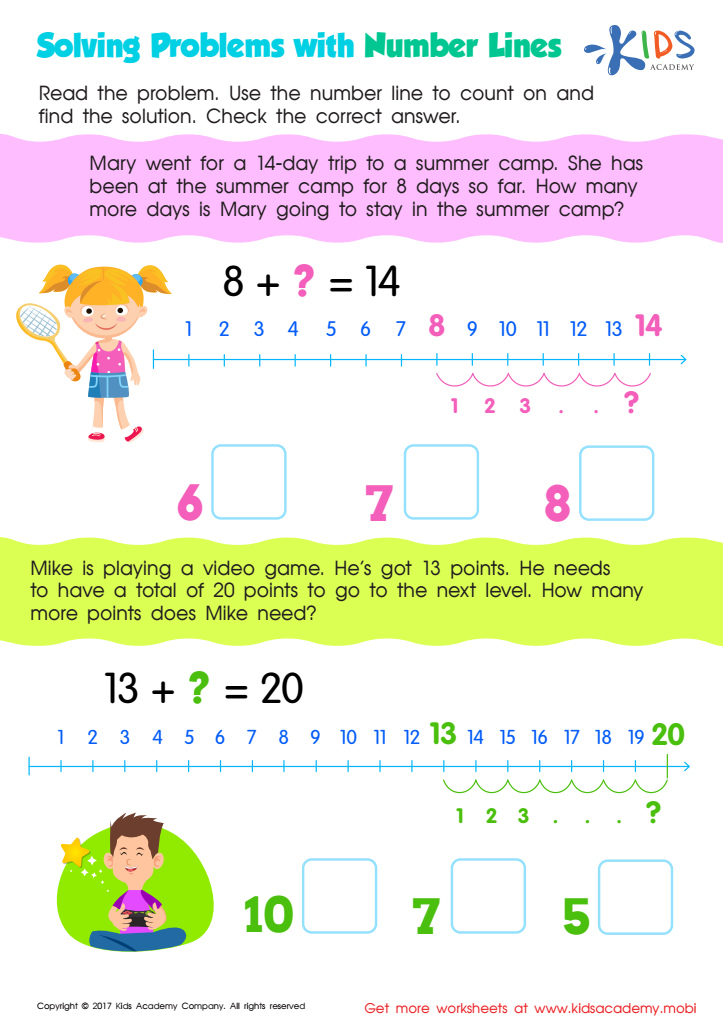

Solving Problems: Number Lines Worksheet
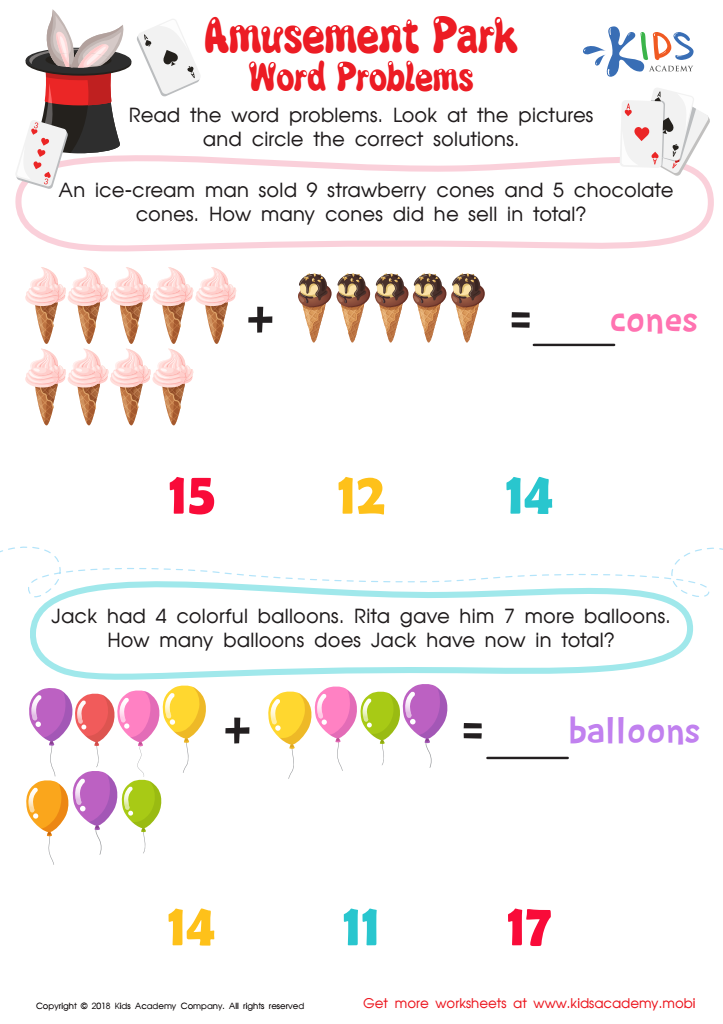

Amusement Park Word Problems Worksheet
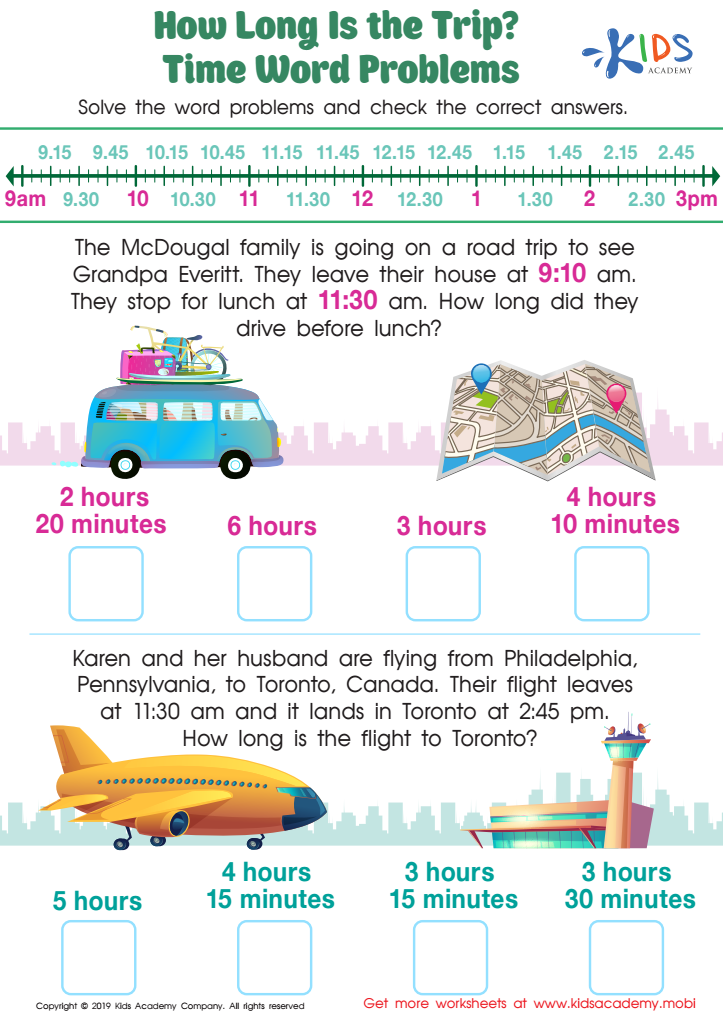

How long is the Trip? Time Word Problems Worksheet
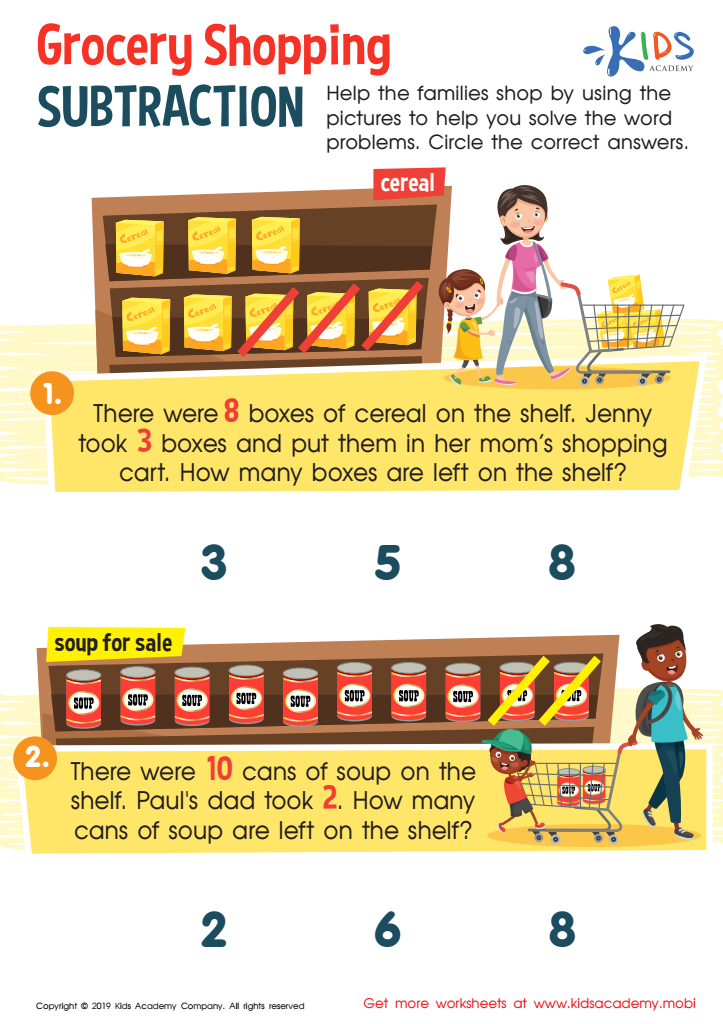

Grocery Shopping Subtraction Worksheet
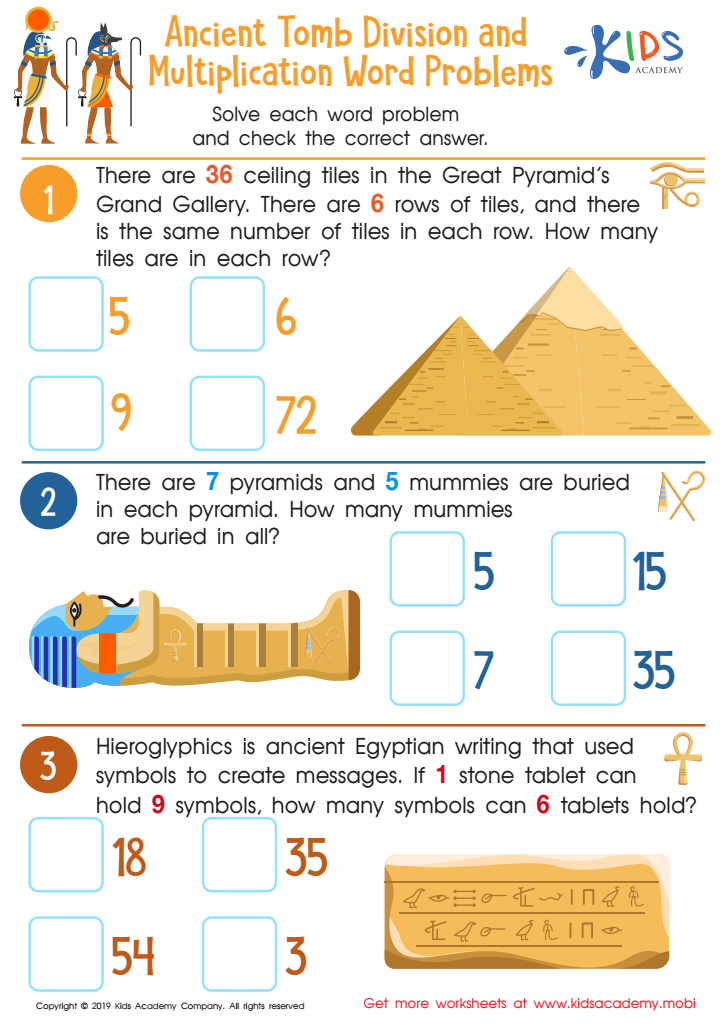

Ancient Tomb Division and Multiplication Word Problems Worksheet
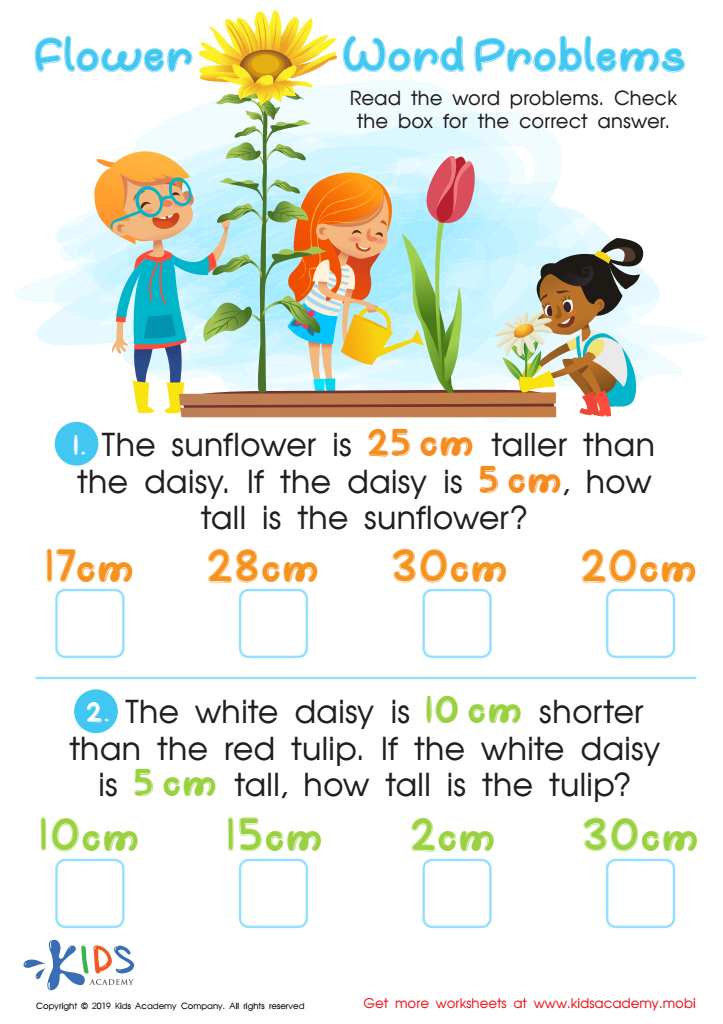

Flower Word Problems Worksheet
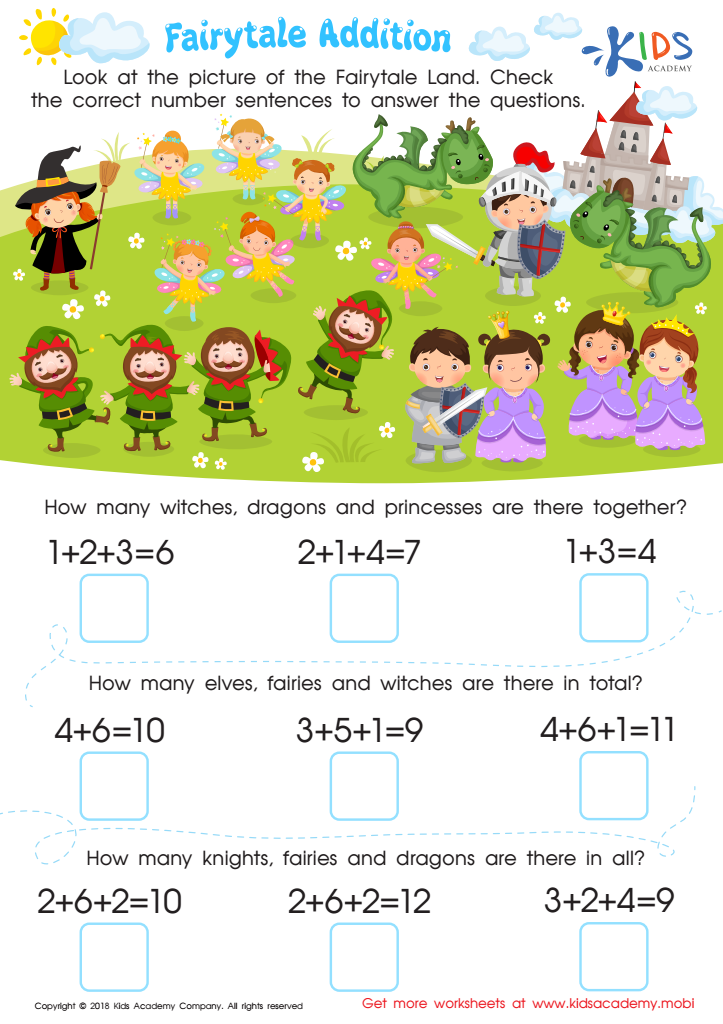

Fairytale Addition Worksheet
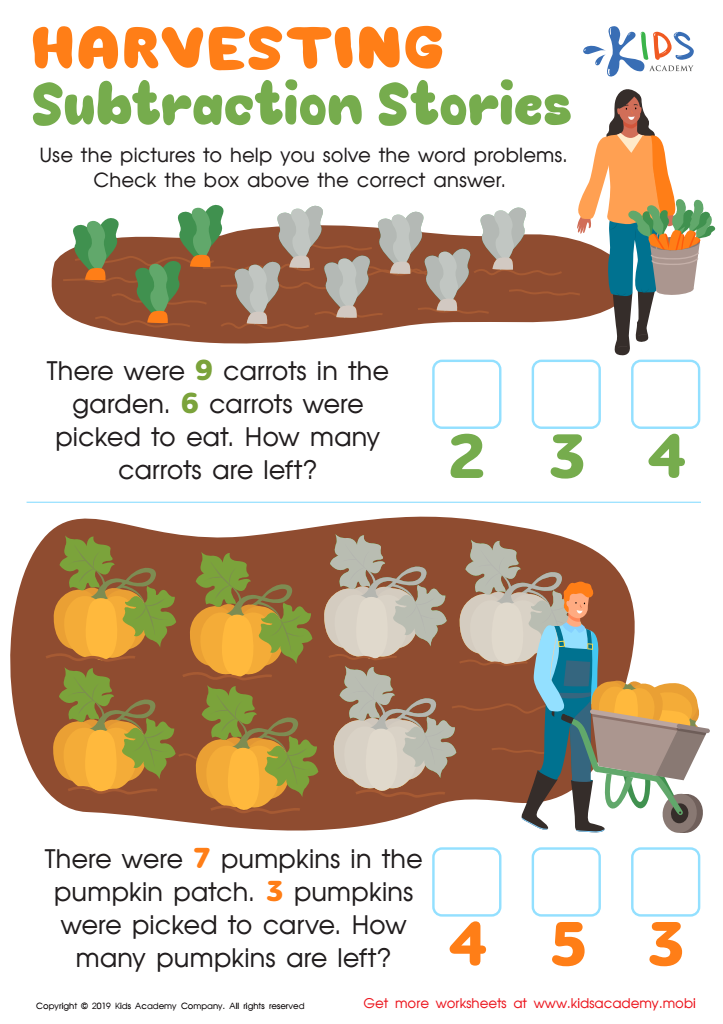

Harvesting Subtraction Stories Worksheet
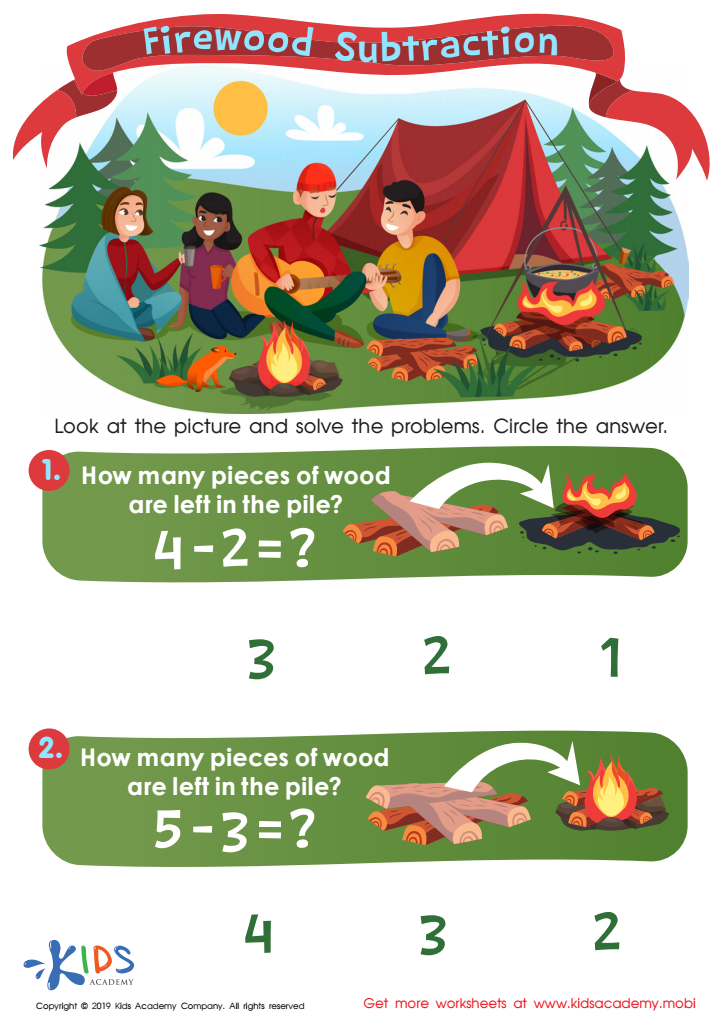

Firewood Subtraction Worksheet
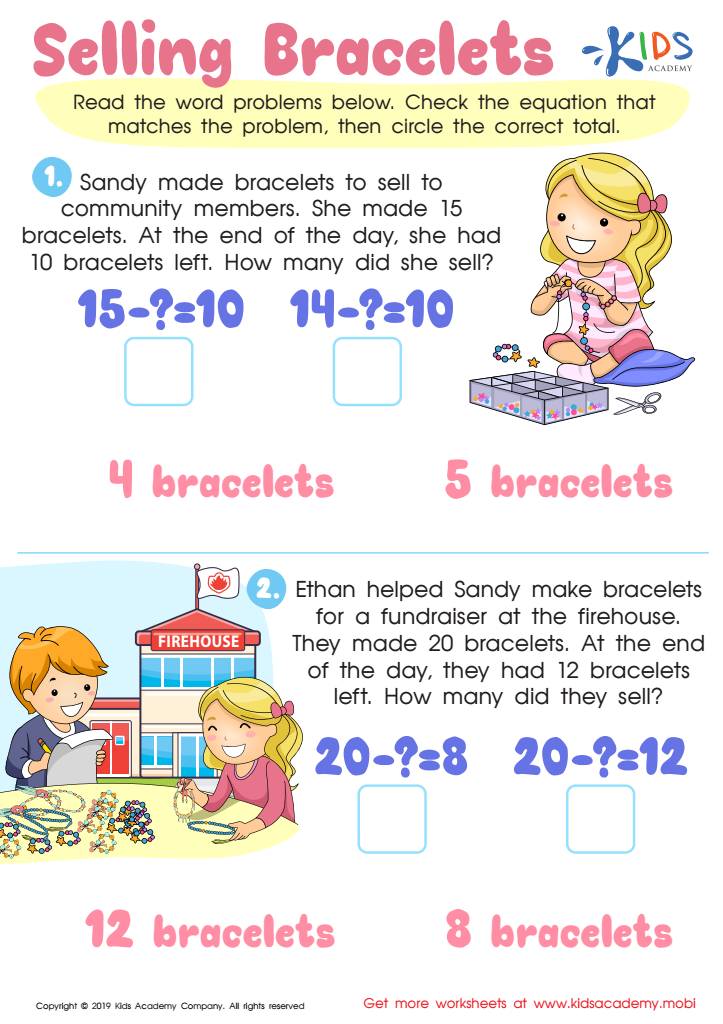

Selling the Bracelets Worksheet
Problem-solving skills in young children, particularly ages 5-9, form a critical foundation for their overall cognitive development and future academic success. When parents and teachers focus on easy word problems, they encourage children to engage in critical thinking and analytical reasoning, fostering independence and confidence in their abilities. Such skills are not just integral to mathematics; they transfer to various areas of learning and everyday life, helping children approach challenges logically.
Furthermore, easy word problems often reflect real-world scenarios, making math relatable and enjoyable. This helps demystify the subject for children who may feel intimidated, promoting a positive attitude towards learning. By encouraging collaborative problem-solving discussions, caregivers and educators can also enhance social skills and emotional intelligence among peers, strengthening their ability to communicate effectively.
Additionally, tackling simple word problems prepares children for more complex mathematical concepts in later grades, ensuring a smoother transition in their education. Ultimately, instilling strong problem-solving abilities at an early age equips children with the tools they need not only for academic achievement but also for becoming effective decision-makers and problem-solvers throughout their lives. Thus, priorities should be set on nurturing these essential skills in children.
 Assign to My Students
Assign to My Students
















